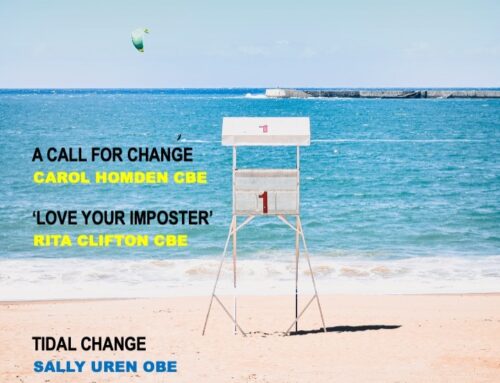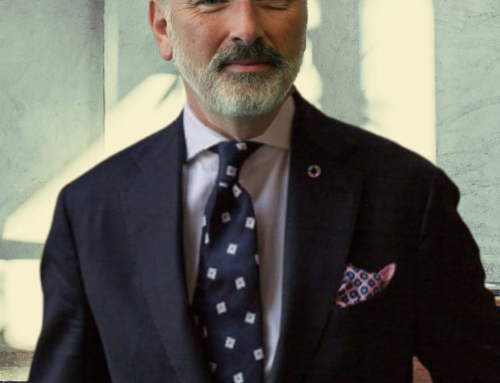Media Freedom!

Of all the alarming, stop-you-in-your tracks headlines of the past few months, the one that seared itself in my brain was this: “Please, don’t inject bleach”. It was a plea from doctors and cleaning companies worldwide for people not to attempt drinking or administering bleach as a potential cure for coronavirus. And the reason some people thought that was an option? Because the President of the United States mused about its potential curative properties in a public briefing.
“I see the disinfectant where it knocks it out in a minute,” Trump said. “One minute! And is there a way we can do something, by an injection inside or almost a cleaning? Because you see it gets in the lungs and it does a tremendous number on the lungs, so it’d be interesting to check that.”
Trump’s musings, the immediate expert rebuttals, and the speed with which the information circulated are symptomatic of one of the biggest challenges of the modern era: the speed with which information can circulate to a global audience, and its potential impact. In the case of a global pandemic, information has the power of life and death. Accurate, trustworthy information – such as handwashing advice – can save lives, while misinformation – suggesting people might inject themselves with bleach, for example – can kill.
Yet at a time when we most need accurate information the media is facing renewed pressure from several sides on what was already a fragile industry. The first source of pressure is governmental. Emergency laws designed to clamp down on false information are being enacted in countries from Honduras to Hungary. At the most basic level, such laws threaten the public’s ability to access independent information, such as in Greece, where the health ministry banned hospital staff from talking to the media.
But more worryingly such clampdowns also provide opportunities for authoritarian regimes to limit freedoms more broadly, and to stifle dissent. In the Middle East, a number of countries including the United Arab Emirates, Saudi Arabia and Yemen issued decrees banning print newspapers, citing potential health risks from touching the paper. In a region in which freedom of expression is already severely curtailed, the pandemic provides the perfect cover to impose further restrictions off and online.
Media freedom campaigners have long expressed concerns about the way in which laws meant to tackle harmful content online could be used by governments to target critical press. The conviction this week of journalist Maria Ressa, one of the Philippines most well-known journalists, is a case in point. Ressa, a keynote speaker at last year’s Foreign and Commonwealth Office-sponsored Global Conference for Media Freedom in London, was found guilty of “cyberlibel” over a story that alleged links between a businessman and a top judge. Amal Clooney, the UK’s envoy on media freedom and who also represents Ressa, said the court had become “complicit in a sinister action to silence a journalist for exposing corruption and abuse”.
Everywhere I look journalists are being threatened into silence: by the threat of financially crippling legal action, by jail, or by the threat of violence. The murder in Malta of journalist Daphne Caruana Galizia, who investigated government corruption and collusion with big business, was a reminder that no country is safe for those who expose abuses of corruption and power.
Journalists, particularly female reporters, are subjected daily to threats and abuse online – and not just those reporting on corruption and criminality. At an event I attended a few years ago, two White House correspondents described the death threats they receive daily: for reporting on politics.
All of this is happening at a time when the traditional financial model for the industry is collapsing. Advertising has long been on the wane, forcing some print outlets to seek increased subscriptions from readers – sometimes successfully as with The New York Times – or charitable contributions –the model adopted by The Guardian.
But as businesses close because of the pandemic, small media organisations in particular suffer. No local restaurant means no local advertising, crippling already hard pressed regional and community media outlets who are some of the most important, and in many cases only, sources of information for the communities they serve.
Internews Europe, the organisation I run, identified these threats to the industry early on in the pandemic and launched a Rapid Response Fund to small and medium sized news outlets and civil society organisations providing life saving information globally. We were inundated with applications for our first round of funding. By the time the latest funding round closes, we hope to have allocated more than 100 grants to journalists and media organisations worldwide.
Grantees include a young Somali journalist countering COVID misinformation in one of Kenya’s largest refugee camps, a non-profit in Malaysia working with LGBTQ populations seeking treatment, a US-based information service aimed at food banks, an Ecuadorean outlet investigating domestic violence against women, and an Italian journalist tracking procurement of healthcare equipment. All these grantees will reach underserved populations, and use their funds to keep operations going, and develop innovative ways to report on COVID-19.
But we know the solution requires much, much more than one-off grants. If independent media are to survive – and continue to provide their vital role not just holding power to account but providing information that can save lives – then we also need to support media everywhere with the tools to operate in this new environment. That means media development organisations like mine need to think not just about training journalists to write and edit, and to do so ethically and safely, but also how provide advice on business models – as well as to advocate publicly for media freedom.
Internews is already making significant strides in this area, working with some of the world’s leading advertisers and consultants on financial sustainability of news media. Together, we can ensure this sector can flourish as we rebuild connections and communities after this period of fracture and discord.
Jodie Ginsberg
CEO, Internews
https://internews.org/
Twitter: @jodieginsberg


Media Freedom!

Of all the alarming, stop-you-in-your tracks headlines of the past few months, the one that seared itself in my brain was this: “Please, don’t inject bleach”. It was a plea from doctors and cleaning companies worldwide for people not to attempt drinking or administering bleach as a potential cure for coronavirus. And the reason some people thought that was an option? Because the President of the United States mused about its potential curative properties in a public briefing.
“I see the disinfectant where it knocks it out in a minute,” Trump said. “One minute! And is there a way we can do something, by an injection inside or almost a cleaning? Because you see it gets in the lungs and it does a tremendous number on the lungs, so it’d be interesting to check that.”
Trump’s musings, the immediate expert rebuttals, and the speed with which the information circulated are symptomatic of one of the biggest challenges of the modern era: the speed with which information can circulate to a global audience, and its potential impact. In the case of a global pandemic, information has the power of life and death. Accurate, trustworthy information – such as handwashing advice – can save lives, while misinformation – suggesting people might inject themselves with bleach, for example – can kill.
Yet at a time when we most need accurate information the media is facing renewed pressure from several sides on what was already a fragile industry. The first source of pressure is governmental. Emergency laws designed to clamp down on false information are being enacted in countries from Honduras to Hungary. At the most basic level, such laws threaten the public’s ability to access independent information, such as in Greece, where the health ministry banned hospital staff from talking to the media.
But more worryingly such clampdowns also provide opportunities for authoritarian regimes to limit freedoms more broadly, and to stifle dissent. In the Middle East, a number of countries including the United Arab Emirates, Saudi Arabia and Yemen issued decrees banning print newspapers, citing potential health risks from touching the paper. In a region in which freedom of expression is already severely curtailed, the pandemic provides the perfect cover to impose further restrictions off and online.
Media freedom campaigners have long expressed concerns about the way in which laws meant to tackle harmful content online could be used by governments to target critical press. The conviction this week of journalist Maria Ressa, one of the Philippines most well-known journalists, is a case in point. Ressa, a keynote speaker at last year’s Foreign and Commonwealth Office-sponsored Global Conference for Media Freedom in London, was found guilty of “cyberlibel” over a story that alleged links between a businessman and a top judge. Amal Clooney, the UK’s envoy on media freedom and who also represents Ressa, said the court had become “complicit in a sinister action to silence a journalist for exposing corruption and abuse”.
Everywhere I look journalists are being threatened into silence: by the threat of financially crippling legal action, by jail, or by the threat of violence. The murder in Malta of journalist Daphne Caruana Galizia, who investigated government corruption and collusion with big business, was a reminder that no country is safe for those who expose abuses of corruption and power.
Journalists, particularly female reporters, are subjected daily to threats and abuse online – and not just those reporting on corruption and criminality. At an event I attended a few years ago, two White House correspondents described the death threats they receive daily: for reporting on politics.
All of this is happening at a time when the traditional financial model for the industry is collapsing. Advertising has long been on the wane, forcing some print outlets to seek increased subscriptions from readers – sometimes successfully as with The New York Times – or charitable contributions –the model adopted by The Guardian.
But as businesses close because of the pandemic, small media organisations in particular suffer. No local restaurant means no local advertising, crippling already hard pressed regional and community media outlets who are some of the most important, and in many cases only, sources of information for the communities they serve.
Internews Europe, the organisation I run, identified these threats to the industry early on in the pandemic and launched a Rapid Response Fund to small and medium sized news outlets and civil society organisations providing life saving information globally. We were inundated with applications for our first round of funding. By the time the latest funding round closes, we hope to have allocated more than 100 grants to journalists and media organisations worldwide.
Grantees include a young Somali journalist countering COVID misinformation in one of Kenya’s largest refugee camps, a non-profit in Malaysia working with LGBTQ populations seeking treatment, a US-based information service aimed at food banks, an Ecuadorean outlet investigating domestic violence against women, and an Italian journalist tracking procurement of healthcare equipment. All these grantees will reach underserved populations, and use their funds to keep operations going, and develop innovative ways to report on COVID-19.
But we know the solution requires much, much more than one-off grants. If independent media are to survive – and continue to provide their vital role not just holding power to account but providing information that can save lives – then we also need to support media everywhere with the tools to operate in this new environment. That means media development organisations like mine need to think not just about training journalists to write and edit, and to do so ethically and safely, but also how provide advice on business models – as well as to advocate publicly for media freedom.
Internews is already making significant strides in this area, working with some of the world’s leading advertisers and consultants on financial sustainability of news media. Together, we can ensure this sector can flourish as we rebuild connections and communities after this period of fracture and discord.
Jodie Ginsberg
CEO, Internews
https://internews.org/
Twitter: @jodieginsberg





